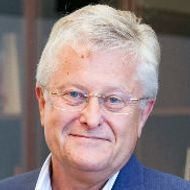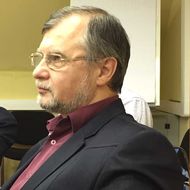- A
- A
- A
- ABC
- ABC
- ABC
- А
- А
- А
- А
- А
- HSE University
- Faculties
- Faculty of Social Sciences
- School of Political Science
- News
- There is Always Conflict
3 Krivokolenny Pereulok, Moscow, 103070.
Phones:
8 (495) 772-95-90 *22833,
8 (495) 772-95-90 *22448
Fax: 8 (495) 772-95-90 *12556
Email: politfac@hse.ru
Washington: Free Russia, 2018.
Petrov N., Hale H. E., Lipman M.
Russian Politics. 2019. Vol. 4. No. 2. P. 168-195.
Arbatli E.
In bk.: Oxford Research Encyclopedia of Politics (Living Edition). Oxford University Press. P. 1-20.
Sorokina A., Maximenkova M., Kasamara V.
Political Science. PS. Высшая школа экономики, 2019. No. 71.

There is Always Conflict
Adam Przeworski is a professor at New York University, and a theoretician of democracy and political economy. He is the author of numerous papers and books, which have been translated into many languages.
Przeworski described politics as a network of mechanisms for processing crises. Politics deals with those eternal contradictions which divide society and, if unchecked, can tear it apart. These can include religious, ethnic, and regional conflicts which occur in the society, and those between elites, as well as between the state and population.
‘There is Always Conflict’, Przeworski said. It’s necessary to understand that conflict is the normal state of a social and political system. The problem is how politics deals with these conflicts. Political analysis always starts with studying the crisis processing mechanisms. And from various mechanisms in various proportions, regimes are built. Conflicts can be structured and regulated, and political institutions are capable of dealing with them.
- About
- About
- Key Figures & Facts
- Sustainability at HSE University
- Faculties & Departments
- International Partnerships
- Faculty & Staff
- HSE Buildings
- HSE University for Persons with Disabilities
- Public Enquiries
- Studies
- Admissions
- Programme Catalogue
- Undergraduate
- Graduate
- Exchange Programmes
- Summer Schools
- Semester in Moscow
- Business Internship
- © HSE University 1993–2025 Contacts Copyright Privacy Policy Site Map
- Edit

